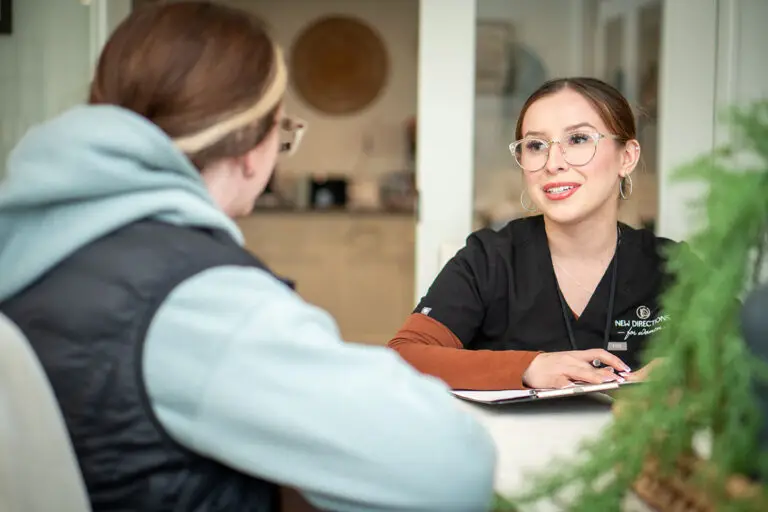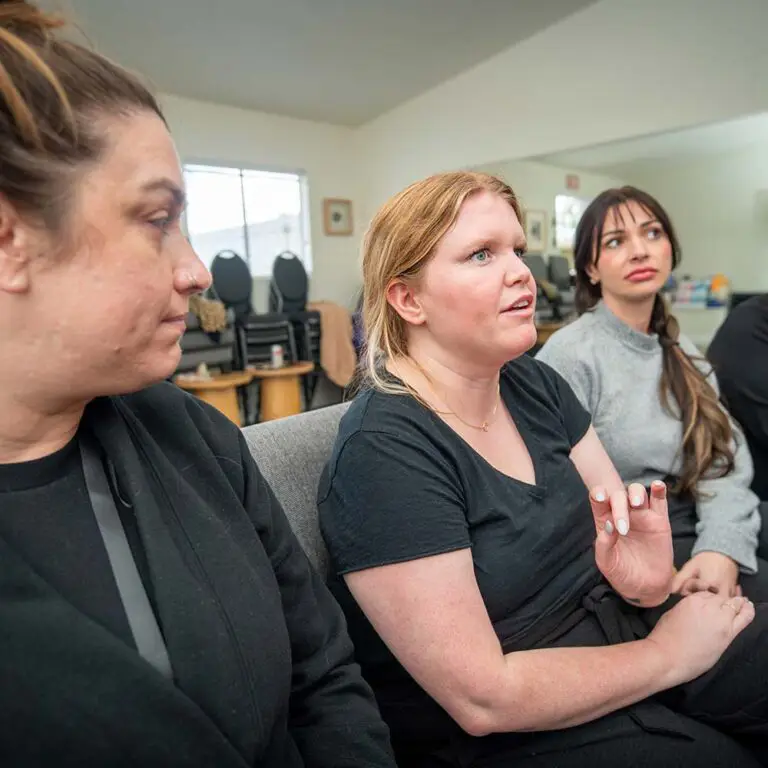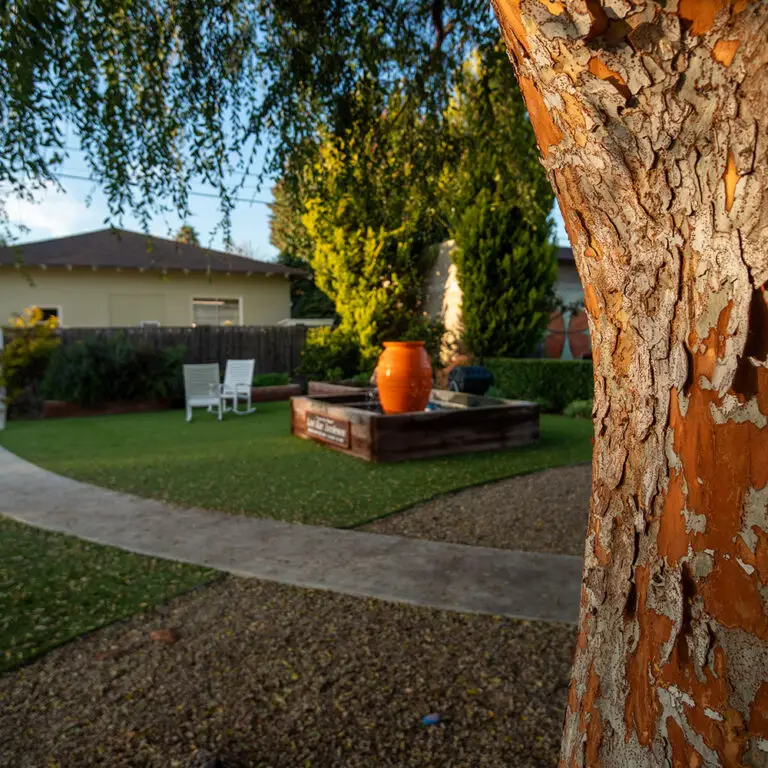24/7 Admissions | Call Now: (800) 939-6636
At New Directions for Women, we embrace a three-part therapeutic philosophy that not only redefines substance use disorder (SUD) and mental health treatment, but also reshapes the lives of the women we touch.
Our approach is deeply rooted in the innovative integration of Narrative Therapy, a road less traveled in the realm of SUD treatment—yet one that’s profoundly impactful. We combine this modality with more traditional Dialectical Behavior Therapy (DBT) skills for interpersonal effectiveness and infuse the principles of the 12 Steps of Alcoholics Anonymous into the structure of our program.

Language and narrative have the power to transform lives. The stories we tell or are told to us about ourselves not only reflect but also shape our reality. Unfortunately, societal narratives often cast shadows of emotionality, brokenness, trauma, and weakness onto women. At NDFW, we stand in the gap, challenging these oppressive narratives by cultivating existing stories of resilience, empowerment, and hope.
Central to our approach is the principle of Curiosity. Through deliberate and thoughtful questioning, we guide our clients to tell their own multi-storied lives that counter common narratives about physical dependence and trauma. We work to reintroduce other stories that then shift the focus from the “problem story”. This shift in focus is crucial, as it reorients the journey as one of empowerment and continuous work. By focusing on the language and narratives that shape their experiences, we empower women to review their stories, moving from a place of perceived failure to one of strength and recovery.
Skillful interactions when emotions are present can be difficult to navigate, which is why DBT is invaluable. Dialectical Behavior Therapy is a type of cognitive-behavioral therapy that psychologist Marsha M. Linehan originally developed. It has been adapted and proven effective for a broad range of mental health diagnoses, including depression, substance use, anxiety, and post-traumatic stress, among others. The theory finds its success in helping people with tangible skill-based behaviors that they can engage in while navigating early recovery.
DBT outlines accessible, easy-to-recall skill sets for emotion regulation and reality-testing with concepts of distress tolerance, acceptance, and mindful awareness derived from Buddhist meditative practice. The therapy is called “dialectical” knowing that two extremes exist at any given time and the ability to tolerate the in-between space requires preparation. Ultimately, it teaches clients an invaluable set of skills that can be used quickly to calm the body, center the mind, experience emotions as they are, and move forward.


We believe in the guiding steps and principles of AA and how they have pioneered and shaped recovery across the world—so we lean on them to guide, structure, and format our programming. We hope to bridge the gifts of AA with the unique language of Narrative through the choice of words we use to describe the woman’s experience. Surrender and other ideas are critical in the recovery world. We work hard to hold space for new definitions of these ideas to promote individuality in a marginalized population. We appreciate the tried and true process of the steps, which take individuals from understanding their own addiction to being able to help another struggling with addiction. The in-between stops of faith, exploration, and connection to others are unparalleled in other community approaches.
Our commitment to a different approach stems from the belief that every woman is resilient and already has what she needs for change and growth. Melding the wisdom of the 12 steps, the empowerment of narrative therapy, and the accessibility of DBT supports our clients with their preferred ways of living through recovery and self-discovery.
Every woman deserves the chance to reclaim her life from SUD, so we’re committed to making treatment financially accessible. We strive to ensure that our transformative treatment programs are within reach, working with various funding sources and offering assistance to those in need, where possible. Our goal is to remove financial barriers, making hope and healing available to all women seeking a new direction. Reach out to our admissions team to verify your insurance or ask about payment plans. You’ll be surprised at how much can change with one phone call.
2607 Willo Lane
Costa Mesa, CA 92627
(800) 939-6636
2280 University Dr.
Newport Beach, CA 92660
(800) 939-6636